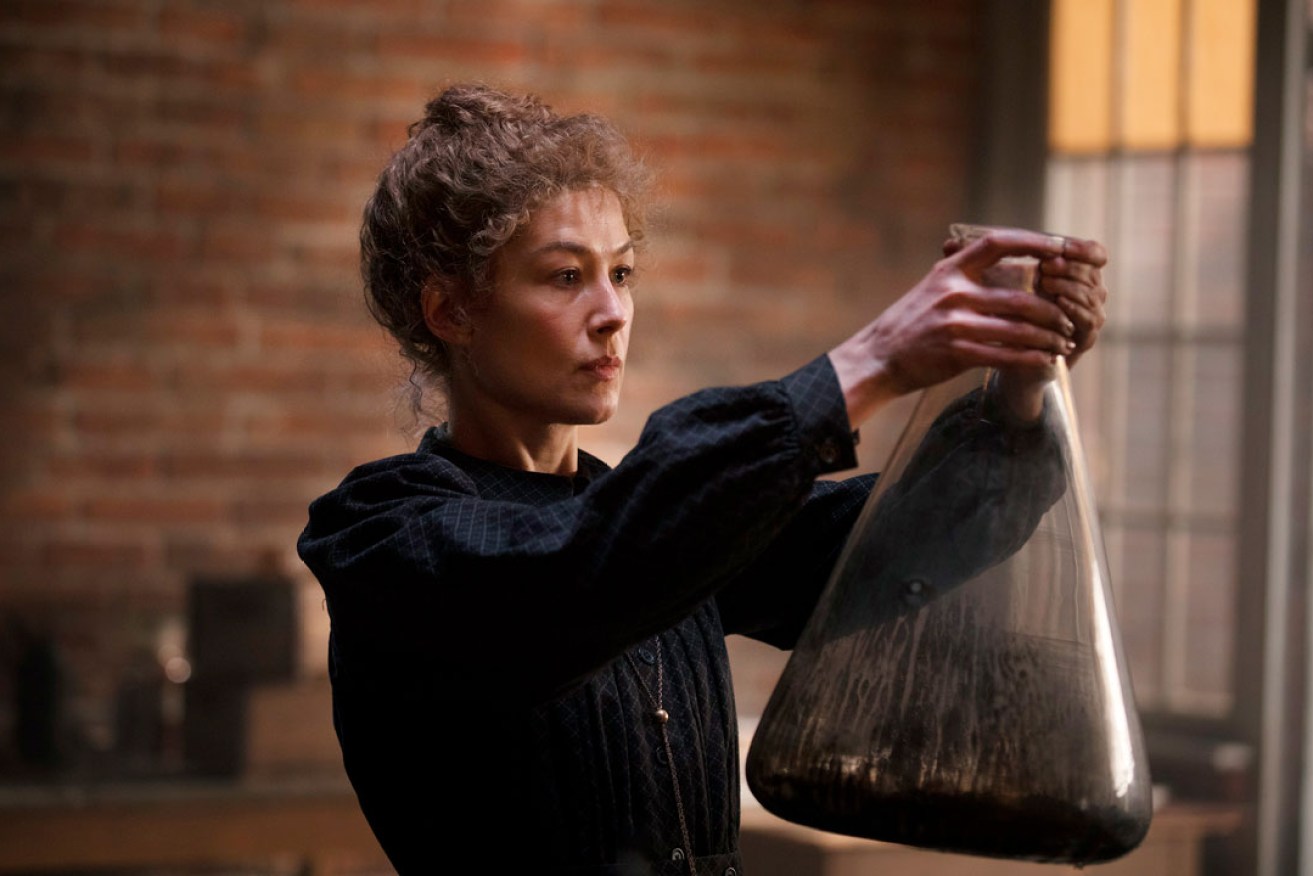Film review: Radioactive
Rosamund Pike brings a wonderful starchy dignity to this creative biopic of Marie Curie that illuminates her brilliant discoveries as a physicist and chemist – and their effects.


Directed by Marjane Satrapi (Persepolis), Radioactive follows the story of how blunt and awkward Polish scientist Maria Salomea Skłodowska (Rosamund Pike) moved to Paris in the late 19th century and entered one of history’s most famous collaborations with fellow scientist Pierre Curie (Sam Riley).
Their collaboration of life and work would win them a joint Nobel Prize for the discovery of radioactivity. After her husband’s death, Marie Curie would win a second Nobel Prize in chemistry for the discovery of radium and polonium, making her the first woman to win the Nobel Prize, and the first person to win two.
The film begins at the end of Curie’s life, as she is wheeled into hospital after collapsing in her laboratory, with the story then unfolding in classic biopic fashion using a series of flashbacks. Satrapi puts a creative spin on this traditional framework by also flashing forward in time to show the various consequences of scientist’s work. Embedded at various points throughout the film we are given glimpses of the development of radiotherapy to treat cancer, the bombing of Hiroshima and nuclear weapon testing in the Nevada desert.
Curie is played with an awkward and stiff-backed dignity by Pike, perfectly illustrating the combination of scientific passion and personal inflexibility needed to carve out a space in a field dominated by men. Pike brings a wonderful prickliness to the socially graceless Curie, which she gradually layers with a more tender side after meeting Pierre and overcoming her instinctual suspicions that collaboration may simply end in her work being usurped.
But the film doesn’t solely focus on Curie’s triumphs, illuminating many lesser-known aspects of her life, both as a scientist and woman. After Pierre’s death, she scandalised Paris by having an affair with her late husband’s married doctoral student, and Pike is wonderful at revealing Curie as a real and complex woman – legendary scientist, mother and a sexual being.
Curie’s later life held even more surprises, working with her daughter Irène during World War I developing ambulances equipped with mobile field-hospital X-ray machines.
The life of Marie Curie has been long overdue for a biopic, and Satrapi has created a vison of that life that applauds the grit and brilliance of the scientist while also being clear-eyed about the long-term impact of her work. Very much like the neon green light from the vial of radium that Satrapi shows Marie and Pierre cuddling with in bed at night, this is a film that is both beautiful and unsettling, emphasising that every discovery holds the potential for both good and harm.




